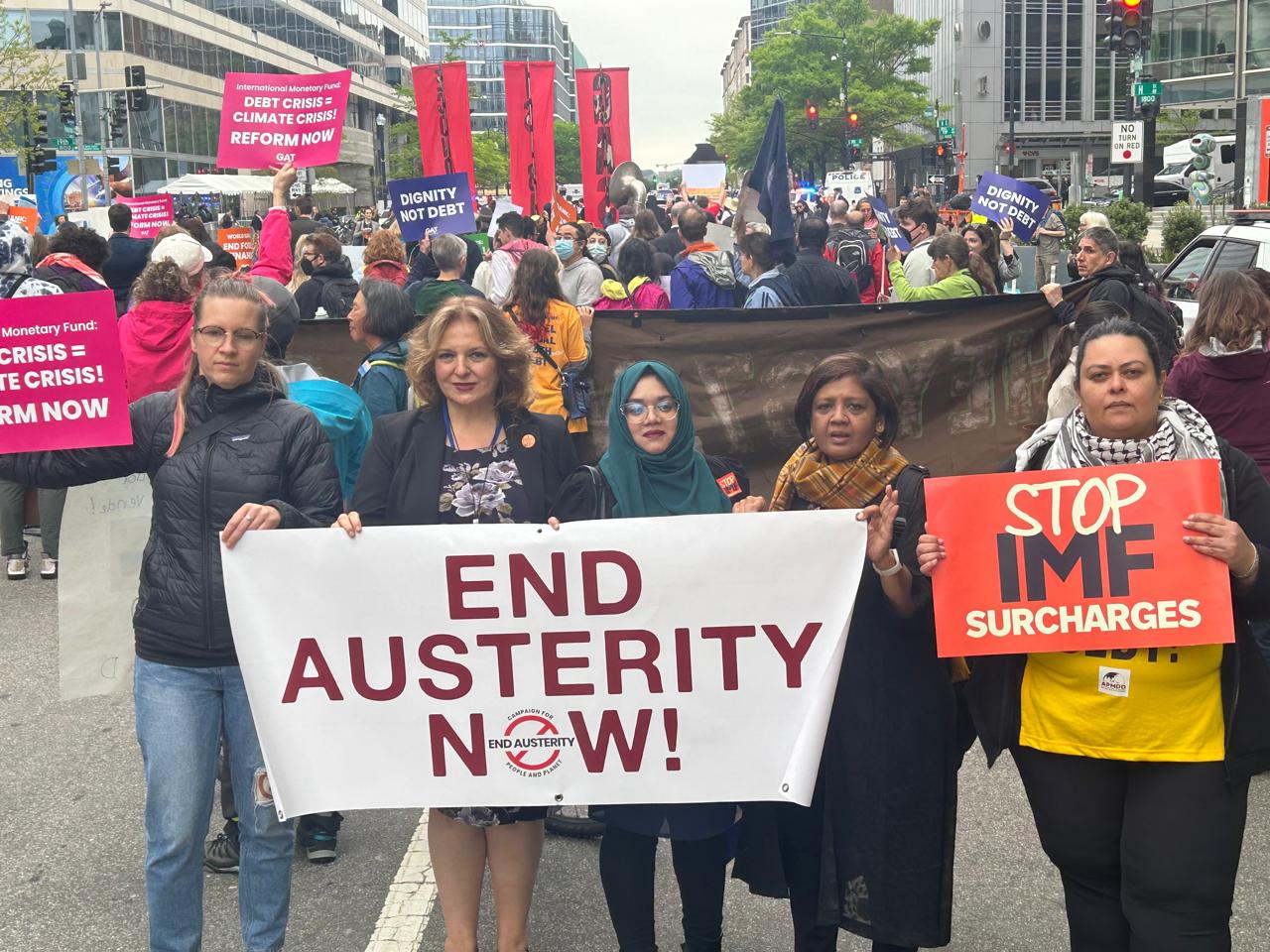80 Years of Broken Promises: The BWIs, Neocolonialism, and the Urgent Need for a Feminist Global Economic Order
The Bretton Woods Institutions (BWIs) – the World Bank and the International Monetary Fund (IMF) – are celebrating a dubious milestone in 2024: 80 years of shaping the global economic order. Established in the aftermath of World War II, these institutions promised a new era of cooperation and prosperity. However, their legacy, particularly for the Global South, is one of neocolonialism, economic injustice, and austerity. As such, we published a call for blog posts last month to collect and consolidate critical feminist reflections on the BWIs, mainly from the Global South, in an effort to provide an alternative perspective on this 80th anniversary.
The BWIs have perpetuated a system rigged in favor of wealthy nations, furthering economic subordination and hindering development in the Global South. These policies have disproportionately impacted women, hindering their access to education, healthcare, property rights, and economic participation. But the consequences extend far beyond gender. Austerity measures demanded by the BWIs, for instance, weaken social safety nets, lead to food insecurity, and negatively impact the climate, harming the well-being of entire communities.
We must highlight that it is not solely the BWIs acting in this capacity, but rather the global economic order they have helped create, with many governments complicit in its perpetuation. This neocolonial dynamic extends to occupation and militarism, with consequences starkly evident in Palestine, as the BWIs continue to promote imperial economic and geopolitical interests. Decades of Israeli occupation and economic strangulation, endorsed by the international community that the BWIs represent, have directly led to the genocide of Palestinians. This is not an isolated case. The BWIs’ focus on debt repayment and neoliberal economic policies often restricts resources available for governments to invest in education, healthcare, and infrastructure, creating ripe breeding grounds for social unrest and violence.
We need a fundamental shift. The current economic order, designed by and for the benefit of a select few, is failing the vast majority of the world’s population. We must reject austerity and embrace alternative economic models that prioritize justice, equality, sustainable development, and the well-being of all people.


